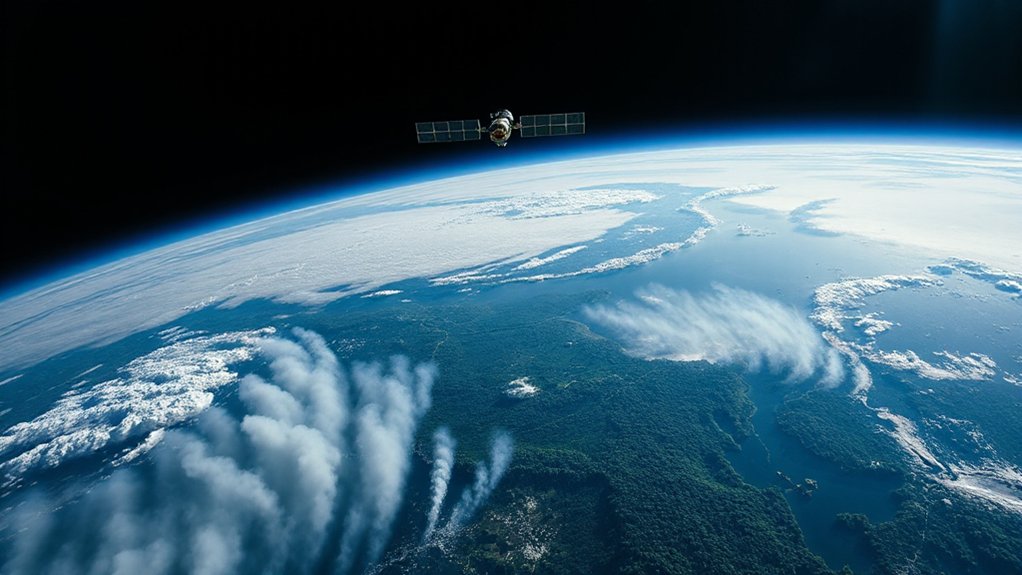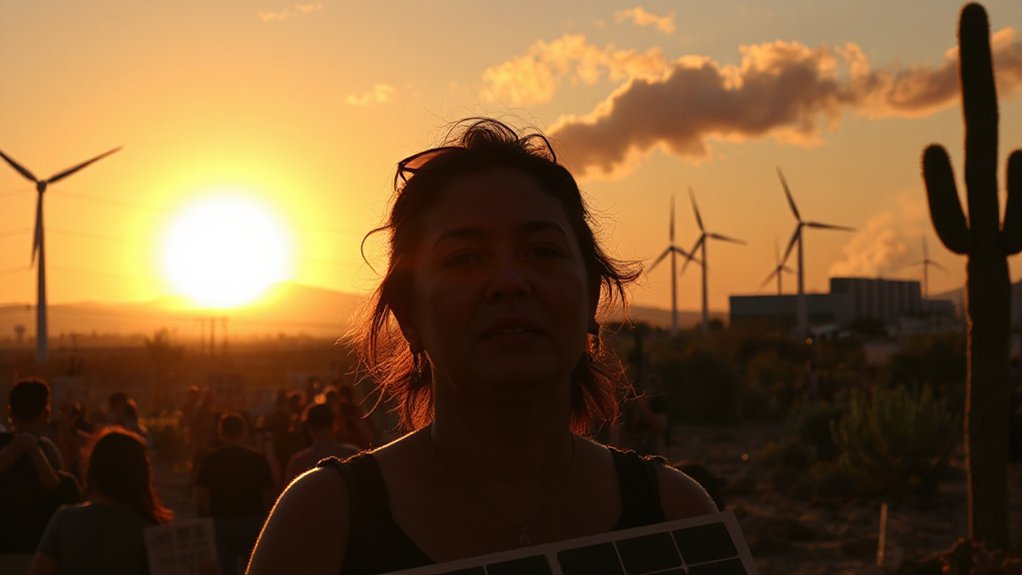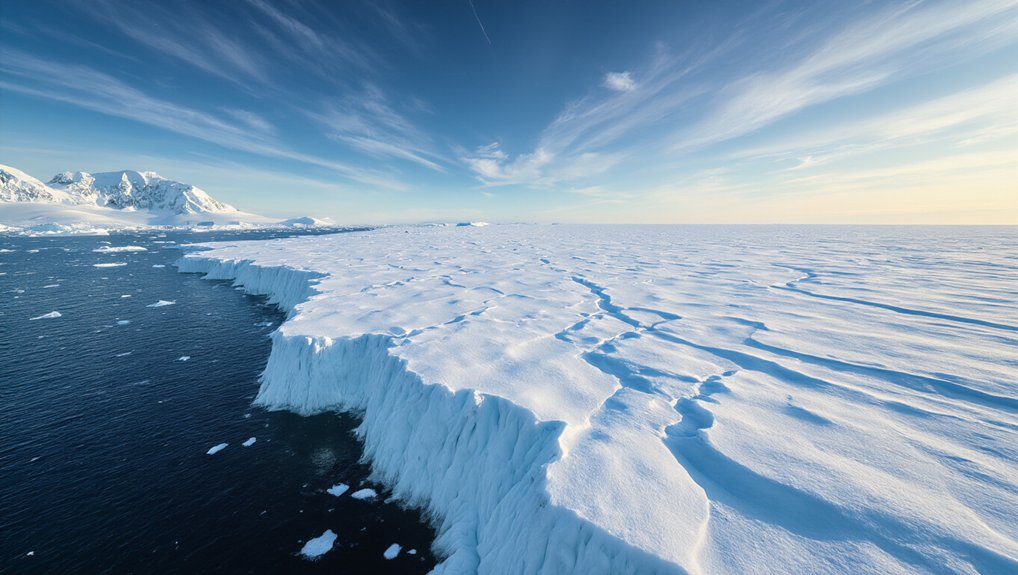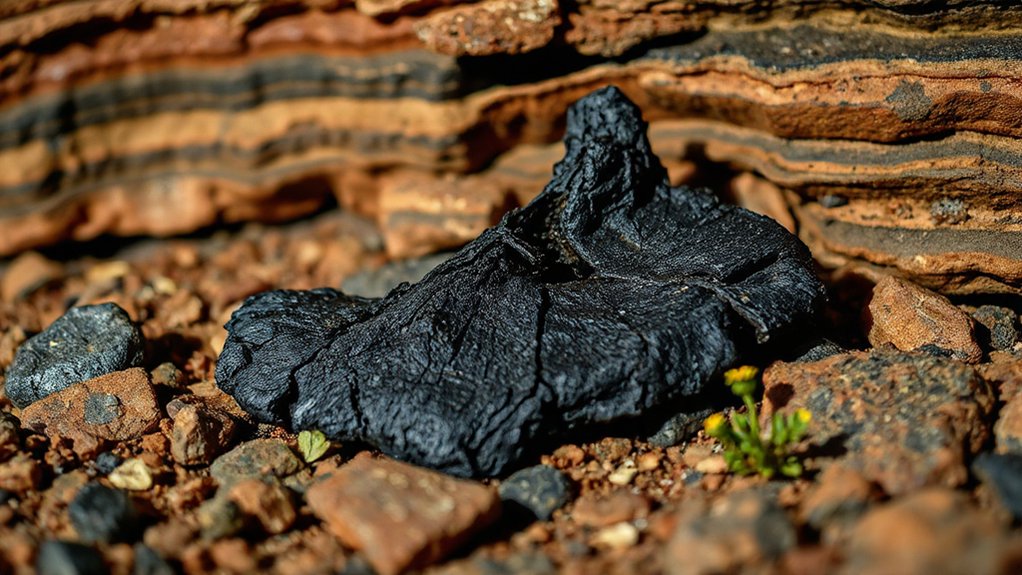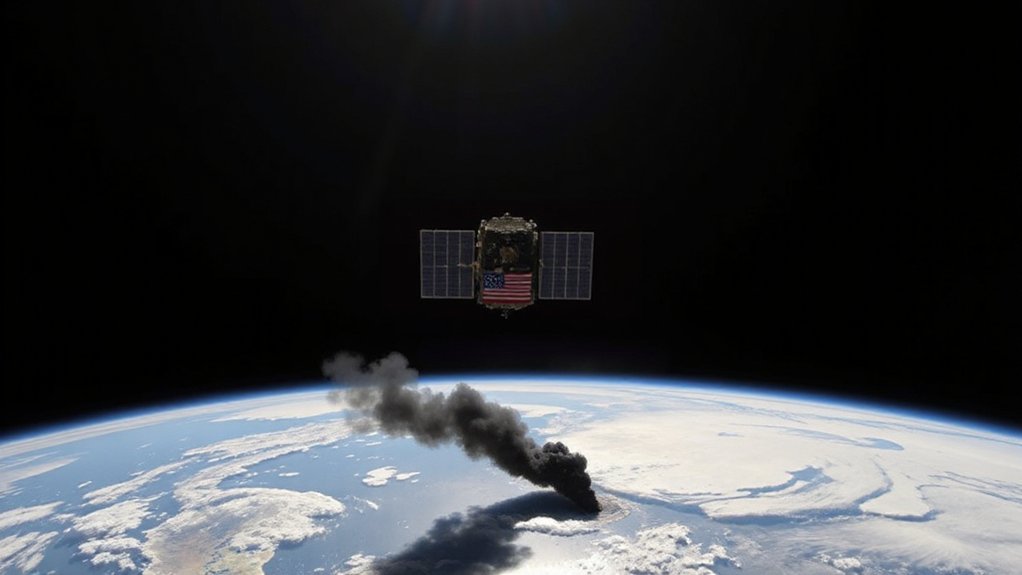The Trump administration has taken aim at the nation’s climate monitoring system, proposing a fiscal year 2026 budget that would eliminate all funding for NASA’s essential carbon-tracking satellites. The Orbiting Carbon Observatory (OCO)-2 and OCO-3 missions, which provide the most precise measurements of global carbon dioxide levels, face complete defunding despite being rated as exceptionally important in NASA’s 2023 review.
The climate monitoring slaughter begins with NASA’s carbon satellites on Trump’s chopping block despite their critical scientific value.
Apparently, science is only worth funding when it doesn’t mention climate change.
These satellites aren’t just fancy space toys. They’ve delivered significant discoveries, like the shocking revelation that the Amazon rainforest—you know, that massive “lungs of the Earth” thing—now emits more CO₂ than it absorbs.
Meanwhile, boreal forests are picking up the slack as carbon sinks. Without this data, we’re basically flying blind on climate change. Great plan.
The budget documents make it clear: weather forecasting in, climate research out. NOAA’s budget likewise restricts funding to “research more directly related to the NOAA mission,” conveniently excluding climate monitoring.
Scientists are calling bull on this distinction, pointing out that weather and climate monitoring are intrinsically linked. Duh.
Farmers will feel the pain too. These satellites monitor global photosynthesis, providing crucial information for drought detection and crop health assessment.
The USDA and agricultural industry rely on these satellite-derived maps. But hey, who needs food security planning anyway?
The scientific community isn’t taking this lying down. Leading researchers have repudiated the administration’s climate reporting, emphasizing decades of research confirming human-caused warming. Unlike geothermal energy, which offers 24/7 reliability regardless of weather conditions, climate monitoring satellites require consistent funding to maintain their critical operations.
They’re particularly irritated that formal scientific reviews rated these satellite missions as exceptionally important, directly contradicting claims they’re past their prime.
If terminated, these satellites could be intentionally deorbited and destroyed—permanently ending their unique data collection. The changes appear to follow a strict weather-only instrument manifest directive that disregards the interconnectedness of climate and weather data.
The move would also undermine international climate agreements by hampering verification of emission reductions. America first in space? Not anymore.
Senator Chris Van Hollen and other lawmakers are pushing back with a counter-budget proposal to maintain these critical NASA scientific missions before the October 1 deadline.
References
- https://www.sej.org/headlines/trump-cuts-climate-satellites-will-make-weather-prediction-harder
- https://www.clearbluemarkets.com/knowledge-base/trump-administrations-budget-threatens-nasa-climate-and-carbon-monitoring-satellites
- https://eos.org/research-and-developments/nasa-planning-for-unauthorized-shutdown-of-carbon-monitoring-satellites
- https://www.latimes.com/environment/story/2025-09-03/leading-scientists-rebuke-trump-administrations-climate-report
- https://subscriber.politicopro.com/article/eenews/2025/08/07/heres-where-the-trump-team-is-scrubbing-climate-data-00497701
